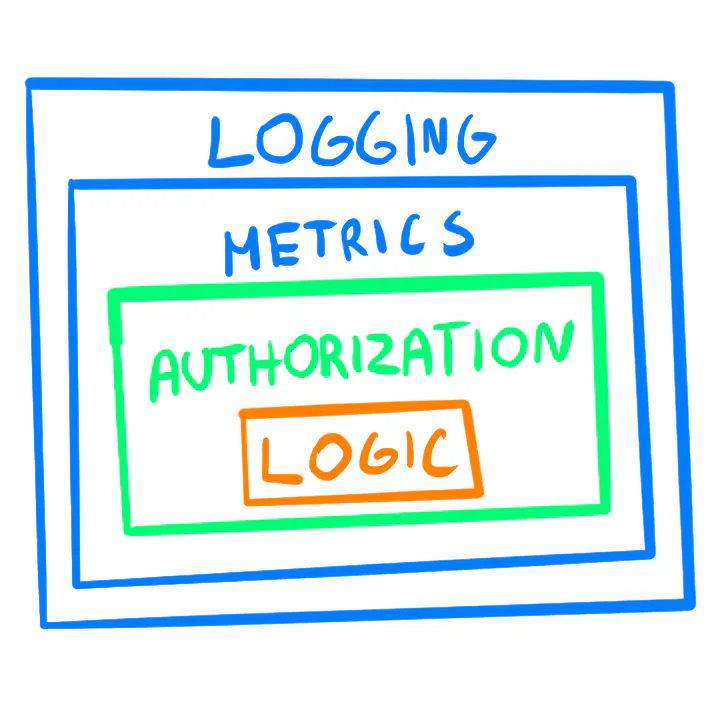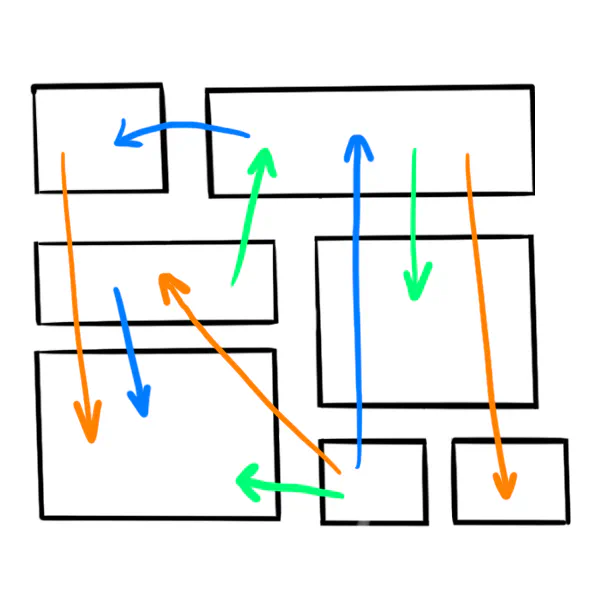
Distributed Transactions in Go: Read Before You Try
In the previous post, I looked into running transactions in a layered architecture. Now, let’s consider transactions that need to span more than one service. If you work with microservices, a time may come when you need a transaction running across them. Especially if the way they are split was an afterthought (the unfortunate but likely scenario). Service A calls service B, which calls service C, and if something goes wrong at the end, the system becomes inconsistent.

Database Transactions in Go with Layered Architecture
As I join a new company, I often feel like an impostor. After all the interviews, they really seem to know what they’re doing. I’m humbled and ready to learn from the best. On one such occasion, a few days in, I dealt with a production outage and asked the most senior engineer for help. They came to the rescue and casually flipped a value in the database with a manual update.

The Go libraries that never failed us: 22 libraries you need to know
Did you have a situation when you lost a ton of time finding a Go library for your need? In theory, you can check lists like Awesome Go or make a choice based on GitHub stars. But Awesome Go contains over 2600 libraries, and popularity is not always the best indicator of library quality. I often thought that it would be great to have a place where I could find just the best and battle-tested libraries I could use in my project.

The Best Go framework: no framework?
While writing this blog and leading Go teams for a couple of years, the most common question I heard from beginners was “What framework should I use?”. One of the worst things you can do in Go is follow an approach from other programming languages. Other languages have established, “default” frameworks. Java has Spring, Python has Django and Flask, Ruby has Rails, C# has ASP.

Increasing Cohesion in Go with Generic Decorators
Cohesion is part of the low coupling, high cohesion principle that’s supposed to keep your code maintainable. While low coupling means few dependencies, high cohesion roughly translates to single responsibility. Highly cohesive code (a module or a function) is focused on a single purpose. Low cohesion means it does many unrelated things. I’ve written about coupling in the previous article on anti-patterns.

Safer Enums in Go
Enums are a crucial part of web applications. Go doesn’t support them out of the box, but there are ways to emulate them. Many obvious solutions are far from ideal. Here are some ideas we use that make enums safer by design. iota Go lets you enumerate things with iota. const ( Guest = iota Member Moderator Admin ) Full source: github.

Common Anti-Patterns in Go Web Applications
At one point in my career, I was no longer excited about the software I was building. My favorite part of the job were low-level details and complex algorithms. After switching to user-facing applications, they were mostly gone. It seemed programming was about moving data from one place to another using existing libraries and tools. What I’ve learned so far about software wasn’t that useful anymore.
Series
Popular articles
- The Go libraries that never failed us: 22 libraries you need to know
- Safer Enums in Go
- Common Anti-Patterns in Go Web Applications
- How to implement Clean Architecture in Go (Golang)
- The Repository pattern in Go: a painless way to simplify your service logic
- Introduction to DDD Lite: When microservices in Go are not enough
Tags
- go
- golang
- watermill
- ddd
- clean-architecture
- domain-driven design
- events
- web-applications
- anti-patterns
- event-driven
- ci
- firestore
- software-development
- architecture
- cloudrun
- gcloud
- googlecloud
- serverless
- testing
- advanced
- databases
- devops
- firebase
- gitlab
- microservices
- reactive
- repository
- backend
- basics
- building-business-applications
- building-in-public
- cqrs
- frameworks
- kafka
- mysql
- nats
- pipelines
- scalability
- software-architecture
- transactions
- amqp
- authentication
- balance
- bounded-context
- c4
- cicd
- code-quality
- code-review
- design-patterns
- diagrams
- docker
- dry
- e-book
- efficiency
- enums
- event-storming
- gamedev
- generics
- google-cloud
- grpc
- htmx
- intermediate
- iteration
- javascript
- learning
- libraries
- maintainability
- metrics
- monolith
- open-source
- openapi
- over-engineering
- overengineering
- parallelism
- productivity
- programming-languages
- prometheus
- pull-requests
- python
- rabbitmq
- retrospective
- security
- sql
- sse
- startups
- strategic-ddd
- swagger
- terraform
- tips
- unpopular-opinions
- versioning